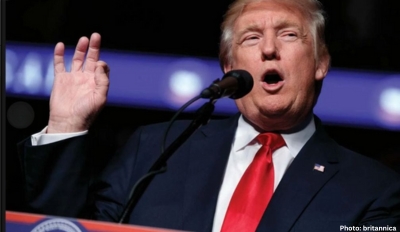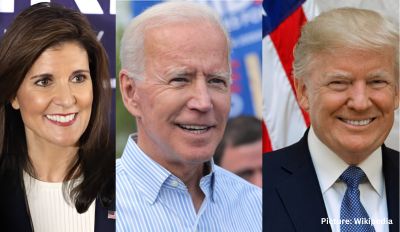Since last week’s conviction of former President Trump on 34 felony counts, he and his supporters have been fixated on seeking revenge.
Within an hour of the verdict, Rep. Mike Collins (R-Ga.) took to social media, suggesting it was time for “Red State AGs and DAs to get busy.”
Trump himself hinted at possible retaliation against Democrats, stating to Newsmax that it was “very possible” they could face prosecution in the future. He reiterated this sentiment on Fox News, asserting his “right to go after them” following his own legal battles.
His call for retribution extended to members of the House special committee investigating the Jan. 6 Capitol attack, whom he suggested should face indictment. In an interview with Dr. Phil McGraw, he even justified revenge, saying, “sometimes revenge can be justified.”
Trump has repeatedly framed his potential reelection as the ultimate revenge, asserting that his success would unify a deeply divided nation. However, concerns have risen about the emphasis on revenge from Trump and his allies, particularly in light of his unprecedented felony conviction.
According to Dan Goldman (D-N.Y.), the use of the criminal justice system to target political adversaries undermines fundamental American values. He dismissed Republican attempts to paint legal actions against Trump as politically motivated, insisting there’s no evidence to support such claims.
Since his indictment last year, Trump has openly suggested targeting his opponents across various states, including proposing a special prosecutor to investigate the Biden family.
Republican lawmakers, echoing Trump’s grievances, have threatened repercussions against prosecutors and even floated the possibility of their own future prosecution.
Following Trump’s conviction, Republicans have called for cuts to federal funding for the Department of Justice and state-level prosecutors. Although such measures have limited impact, they signal a growing willingness to challenge legal institutions.
Some Republicans anticipate a more aggressive approach once Trump assumes office again, with his own appointees potentially reshaping the Justice Department.
Despite attempts from media figures to dissuade Trump from pursuing vendettas, he remains steadfast, attributing his conviction to political persecution.
While some lawmakers emphasize the importance of accountability and systemic improvements, others focus on retaliatory actions against perceived adversaries.
Despite criticisms of bias, Trump’s guilty verdict was unanimous, highlighting the strength of the case against him.
Democrats reject claims of unfair targeting, pointing to ongoing legal proceedings involving figures from both parties.
Trump’s fixation on revenge could harm him politically, with the Biden campaign contrasting his attacks on the justice system with the president’s focus on public issues and international diplomacy.
Biden has condemned Trump’s assaults on the legal system, warning of the damage to public trust in vital institutions.
In the wake of his criminal convictions, Trump’s priorities appear centered on preserving his own freedoms, raising questions about his motives and intentions moving forward.











